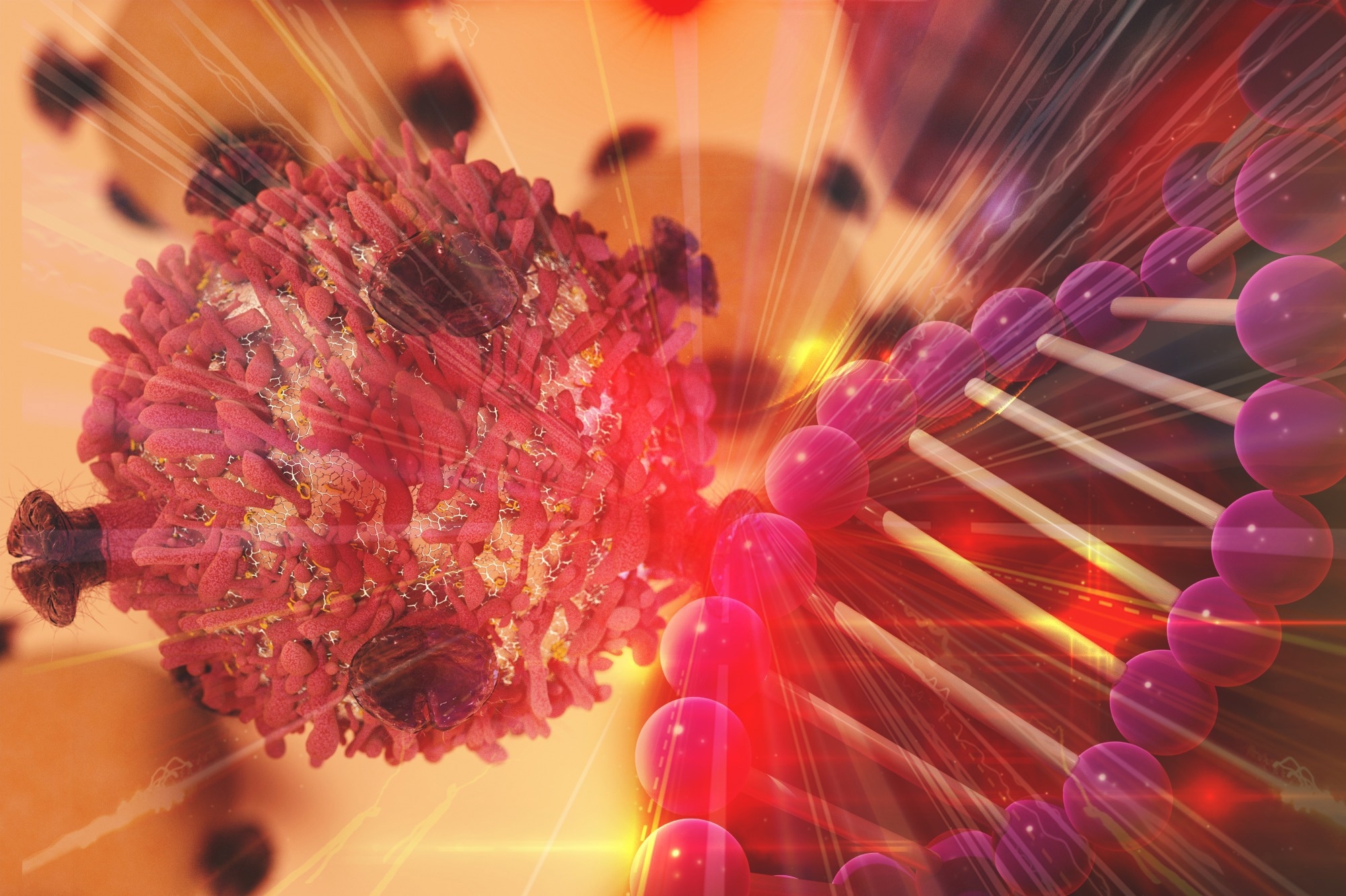Cancer immunotherapies, such as immune checkpoint inhibitors, rely on the immune system recognizing cancer-specific ‘non-self’ antigens.
These antigens are bound to human leukocyte antigen (HLA) molecules, which help differentiate between self- and non-self peptides and present antigens to T cells.
In a recent study published in Science Advances, a team of Spanish researchers examined sequence data from tumor tissue from patients with hepatocellular carcinoma to determine if microproteins translated from noncanonical open reading frames (ncORFS) in long noncoding ribonucleic acids (RNAs) could be a potential source of tumor-specific antigens.
 Study: Microproteins encoded by noncanonical ORFs are a major source of tumor-specific antigens in a liver cancer patient meta-cohort. Image Credit: CI Photos/Shutterstock.com
Study: Microproteins encoded by noncanonical ORFs are a major source of tumor-specific antigens in a liver cancer patient meta-cohort. Image Credit: CI Photos/Shutterstock.com
Background
Immune checkpoint inhibitors, cancer vaccines, and other immunotherapy approaches rely on the immune system recognizing non-self antigens presented on HLA molecules. These neoepitopes are formed not only from the nonsynonymous mutations that occur in cancer cells but also from abnormalities in tumour gene expression.
While class I antigens are important for cancers such as bladder and lung cancer and melanomas, which carry numerous mutations, class II antigens are especially important for cancers such as hepatocellular carcinoma, where the mutations are less frequent. However, these cancers constitute over 90% of liver cancer cases.
Microproteins obtained from the translation of ncORFs present in sequences that are considered non-coding could potentially be cancer-specific antigens.
About the study
In the present study, the researchers examined sequence data from patients with hepatocellular carcinoma. They compared them to the sequences from matched healthy tissue to determine whether ncORFs could be a promising source of cancer antigens that can be used for immunotherapy.
Previous studies have described numerous microproteins that have been translated from ncORFs present in long non-coding RNA sequences. Furthermore, data on immunopeptides obtained through mass spectrometry using tumors and cancer cell lines have shown that HLA molecules can present the microproteins obtained from ncORFs.
Studies have found that nearly 15% of peptides bound to HLA class I molecules, which distinguish between self and non-self peptides, are obtained from ncORFs in various tumors.
Only those ncORFs that are expressed in a tumor-specific manner can avoid the immune system's self-tolerance. To determine which microproteins obtained from ncORFs are tumor-specific and could be potential therapeutic targets, it is essential to compare the expression profiles of tumor tissue with healthy tissues from the same patient.
Therefore, the researchers identified four cohorts of hepatocellular carcinoma patients with transcriptomic data available for both tumor tissue and healthy adjacent tissue. They also obtained ribosome profiling sequencing data for an additional ten hepatocellular carcinoma tumors.
The datasets were validated using two genes that are generally over-expressed in hepatocellular carcinoma and one that is under-expressed. The validated datasets were then used to quantify gene expression, identify novel and tumor-specific transcripts, and analyse RNA sequencing data from tumors and matched healthy tissues.
The RNA sequence data and information on putative peptides that could bind to HLA-1 antigens were used to predict the translation of ncORFs.
The predictions were then validated using in vitro assays to assess HLA-peptide binding, followed by in vivo experiments to test immunogenicity in mice models expressing human HLA antigens.
Major findings
The study identified 33 long noncoding RNAs that were tumor-specific and expressed novel cancer-specific antigens that were common in 10% of the analysed hepatocellular carcinoma samples. The researchers also found that nearly 40% of tumor-specific antigens in hepatocellular carcinoma were likely to be expressed through ncORFs.
The results also showed that the microproteins generated from ncORFs could bind to HLA-I antigens, indicating that they would be effective in being presented by the HLA antigens to the immune system, especially through HLA-I bound antigen presentation to T cells.
Furthermore, these ncORF-derived peptides were also more likely to be unstable unless they were bound to HLA-I antigens in the cytoplasm.
Additionally, the tumor-specific transcripts enriched human endogenous retroviruses (HERV) sequences, indicating that endogenous retroviruses might facilitate the translation of cancer-specific long noncoding RNAs.
Studies on clear renal cell carcinoma have found a link between immunotherapy response and HERV signatures, indicating that tumor antigen production might be associated with active transcription of regions containing HERV signatures.
The in vivo immunogenicity tests using transgenic mice showed that two out of the four ncORF-derived antigens were successfully presented by HLA-I antigens and generated significant levels of immune responses involving cytotoxic T cells.
Conclusions
The results indicated that ncORFs were prevalent in long noncoding RNAs in tumor tissue and could generate tumor-specific antigens that could be presented on HLA-I antigens.
The study identified numerous promising tumor-specific antigens that could be targeted for immunotherapy, with two of the tested antigens generating substantial cytotoxic T-cell responses after being presented on HLA antigens.
Journal reference:
-
Camarena, M. E., Theunissen, P., Ruiz, M., RuizOrera, J., CalvoSerra, B., Castelo, R., Castro, C., Sarobe, P., Fortes, P., PereraBel, J., & Mar, A. M. (2024) Microproteins encoded by noncanonical ORFs are a major source of tumor-specific antigens in a liver cancer patient meta-cohort. Science Advances, 10(28). doi:10.1126/sciadv.adn3628. https://www.science.org/doi/10.1126/sciadv.adn3628